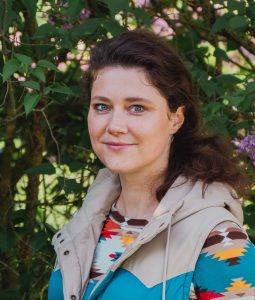Bionote

Dr. Kathrin Grahmann is an agricultural scientist specializing in sustainable cropping systems, soil quality, and resource use efficiency. She earned her PhD in 2016 from the University of Kassel, focusing on nitrogen balances and losses in irrigated conservation agriculture at CIMMYT. She has held research positions in Mexico, Uruguay, and Germany, currently serving as a Tenure-Track Researcher at ZALF. Her expertise spans soil erosion, nutrient cycling, landscape-scale field experimentation, and digital technologies for precision farming. She leads the SoilRob research group to advance in research on autonomous field robotics and their impact on soil functions in diversified cropping systems.
Presentation Abstract
PatchCROP, a unique landscape laboratory established in 2020 by the Leibniz Centre for Agricultural Landscape Research (ZALF) within the PhenoRob Cluster, explores diversified cropping systems to enhance agricultural diversification for resilient cropping systems. The 70-ha experimental site in Brandenburg is structured as a mosaic of 30 half-hectare fields, cultivated with nine different crops. Over the first research phase (2020–2024), extensive field and modeling studies have examined site-specific management, soil erosion mitigation, crop growth dynamics, and greenhouse gas emissions. Key findings include the identification of soil type and weather conditions as major drivers of N₂O emissions, the potential of flower strips for erosion control, and the effectiveness of digital tools for pest monitoring in rapeseed.
As the second phase begins (October 2024), the research focus will shift towards refining crop rotation strategies, eliminating flower strips, and standardizing pesticide reduction measures to improve comparability. PatchCROP continues to serve as a platform for integrating digital technologies and co-design processes in sustainable agriculture. This presentation will summarize methodological advances, environmental impacts, and practical applications, highlighting how diversified cropping can contribute to resilient and resource-efficient farming systems.
Co-Authors: Ixchel Hernandez Ochoa, Anna Engels, Isabel Zentgraf, Jennifer Thompson et al.